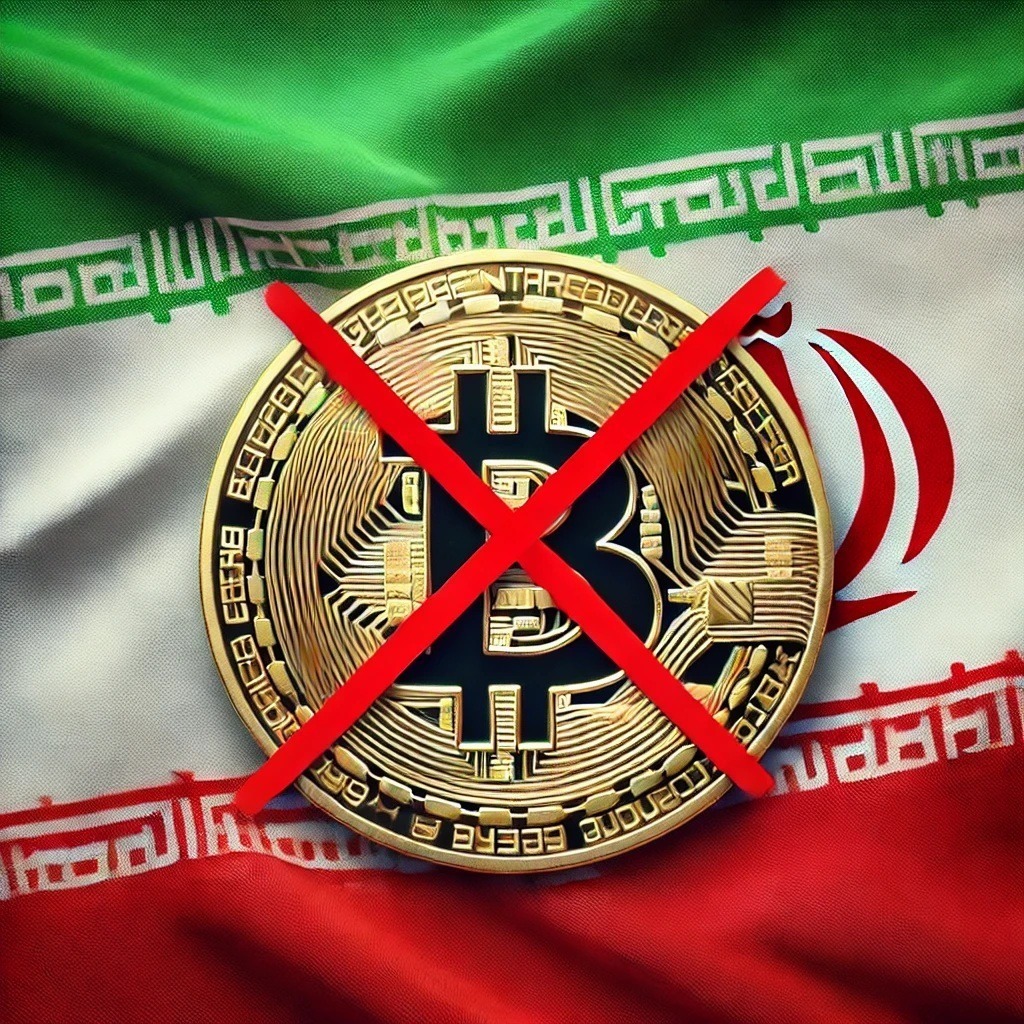Authorities in Iran have double-down on their distrust of cryptocurrencies and online exchanges as the value of the national currency, the rial, collapsed.
Last month, the Central Bank of Iran (CBI) stopped issuing payments in all cryptocurrency exchanges, which left over 10 million crypto users unable to spend rials on Bitcoin and other altcoins.
The crypto market grew significantly last year and is trending towards a bullish 2025. Young Iranians are turning to the expanding global market to earn money in an isolated economy burdened by Western sanctions.
Furthermore, the Iran government had attempted this move before, but never for such a long period. It appears to be part of an effort by the establishment to impose control on the growing crypto community.
The government aimed to counter further depreciation of the national currency by preventing it from being exchanged for foreign currencies. Crypto in Iran also still remains disconnected from the global payments system. After imposing the block, the central bank largely maintained radio silence and did not offer clarifications to the public.
Additionally, the central bank noted in a public statement that CBI Governor Mohammad Reza Farzin attended a meeting with the heads of government, judiciary, and parliament last month. There, Farzin received “full authority to monitor and manage the cryptocurrency market.”
Read more: Multiple states put together bills to make Bitcoin a reserve asset
Read more: Sol Strategies chosen as sole staking provider for Solana ETF
New restrictions part of measures to prevent currency depreciation
President Masoud Pezeshkian also sent a letter to Farzin last week, published in the media, emphasizing that the CBI is the “sole trustee to manage” the crypto market.
The meeting last month also concluded the government wants to increase export trade by bringing cryptocurrencies into the Iranian market. However, the government did not specify how this would be achieved.
The new restrictions seem to be part of strict measures to prevent currency depreciation. Meanwhile, the CBI pumps more foreign currency into the volatile local market and police periodically announce the arrest of illegal currency traders in the streets of Tehran and other major cities.
This week, the Iranian rial continued its slide, hitting a new all-time low of more than 940,000 per US dollar. A dollar fetched less than 600,000 rials in October last year, and less than 40,000 in early 2018.
The national currency has sharply declined in recent weeks due to escalating regional conflicts. Additionally, it has declined due to setbacks to the Tehran-led “axis of resistance,” and Donald Trump’s continued “maximum pressure” campaign.
Days after its sudden decision to ban rial purchases of cryptocurrencies, the CBI imposed conditions on online exchanges and began negotiations with them. Some had their rial gateways restored at limited capacities, while others are still negotiating.
Some of the “proposed measures” by the CBI included top-level access to customer information, such as real-time access, constant updates, and the ability to block users whenever necessary.
Read more: Hackers steal $1.4B worth of Ethereum from Bybit crypto exchange
Read more: Securities and Exchange Commission backs off on DeFi lawsuit
Central bank focused on dollar-pegged USDT stablecoin
Similar to the artificial limits regulators have set for trading on Iran’s stock markets, the CBI plans to impose daily caps on how much the rial price of cryptocurrencies can change. If the currencies exceed defined limits, their rial trade would temporarily suspend.
The dollar-pegged stablecoin Tether (USDT) has drawn the central bank’s attention in recent years. Many Iranians are buying it as a hedge.
The government aims to ensure that if USDT prices surge by more than 4 percent in a day, Iranian traders will be temporarily blocked from buying it.
Iran isn’t the only country that’s taken a hard stance on cryptocurrencies.
In recent years, several countries have taken stringent measures to regulate or restrict cryptocurrency activities. These activities are typically in response to concerns over financial stability, capital flight, and the lack of regulatory oversight.
China led the way in 2021 by cracking down on cryptocurrency trading and mining. The People’s Bank of China (PBOC) banned financial institutions from providing services related to crypto. China’s actions were part of a broader effort to control capital outflows and maintain currency stability.
Meanwhile, on the subcontinent, India has also considered measures to limit crypto trading.
It’s been considering a potential ban on crypto purchases with fiat currencies and the introduction of harsh tax regulations. Despite this, it has not fully banned cryptocurrencies but has imposed significant restrictions.
Additionally, Turkey, in 2021, prohibited the use of cryptocurrencies for payments and implemented strict regulations on exchanges, including customer identification and transaction reporting. Similarly, Russia has explored options to restrict or ban cryptocurrency trading, targeting exchanges and limiting its use for payments.














